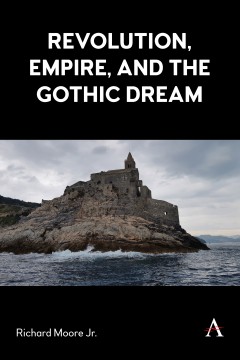Other Formats Available:
E-Book- About This Book
- Reviews
- Author Information
- Series
- Table of Contents
- Links
- Podcasts
About This Book
In the medieval and early modern periods, dreams were seen as having the potential to grant a glimpse of what was unknown or outside the dreamer’s body. Prophetic dreams were believed to possess spiritual, philosophical, and political meaning. But in the long eighteenth century, realism and Enlightenment thinking introduced both a sense of skepticism about the putatively divine significance of dreams and an interest in the natural causes for them. Under the influence of Enlightenment rationalism and medical science, dreams were considered to be aberrations – evidence of temporary internal disorder – and were removed from social and political importance. Concurrent with this diminished significance and increased interest is the rise of the Gothic, and fundamental to that rise is the narrative/poetic dream scene. This monograph examines how dreaming is reimagined in the Gothic, how Gothic dreams transform, and what these transformations reveal about Britain’s social, cultural and political anxieties – namely, those concerning historiography, revolution, slavery and empire – and how the Gothic dream is adapted and reimagined further in Caribbean novels.
To explore the changes and to historicize the Gothic dream, this monograph views dreams as temporally charged phenomena and employs eighteenth century ideas about solitude and Burkean notions of the sublime and the monstrous. These concepts provide a useful framework through which to understand the relationships between the dreamer and the dream as well as the dreamer and society. The aesthetic sublime requires spatio-temporal distance while the political monstrous constitutes the erosion of distance and the collapse of boundaries. In the final chapter, theories of islandness are used to examine how the Gothic dream becomes a political tool for postcolonial writers.
This monograph argues that the Gothic exposes and establishes dreams as social and political, not merely individual, phenomena.The Gothic counters the Enlightenment and reimagines dreaming by making either or both prophecy and liminality central to the dream scene. While the first British Gothic novels, The Castle of Otranto (1765) and The Old English Baron (1778), feature unambiguously prophetic and providential dreams, in later novels, prophetic dreams continue to be central to the Gothic, but these later moments are complicated by a cloud of uncertainty. What we continually see is a vacillation between the sublime and the monstrous that reveals anxieties about British claims of progress and liberty. In the process, the Gothic dream comes to be a liminal space for the dramatisation of imperial fantasies and prophetic nightmares. In the twentieth century, postcolonial writers adapt the Gothic dream to subvert the teleology of imperialism.
Reviews
Author Information
Richard W. Moore Jr. received his Ph.D. in English from Fordham University in May 2018. He is currently teaching in the English department in the College of Mount Saint Vincent in the Bronx, New York.
Series
Anthem Studies in Gothic Literature
Table of Contents
Links
Stay Updated
Information
Latest Tweets



